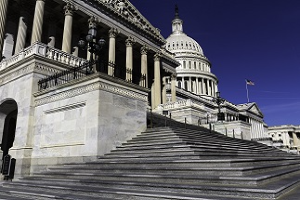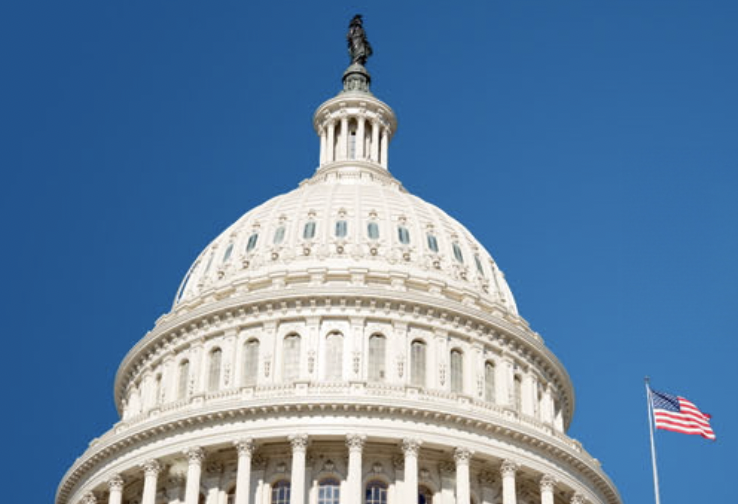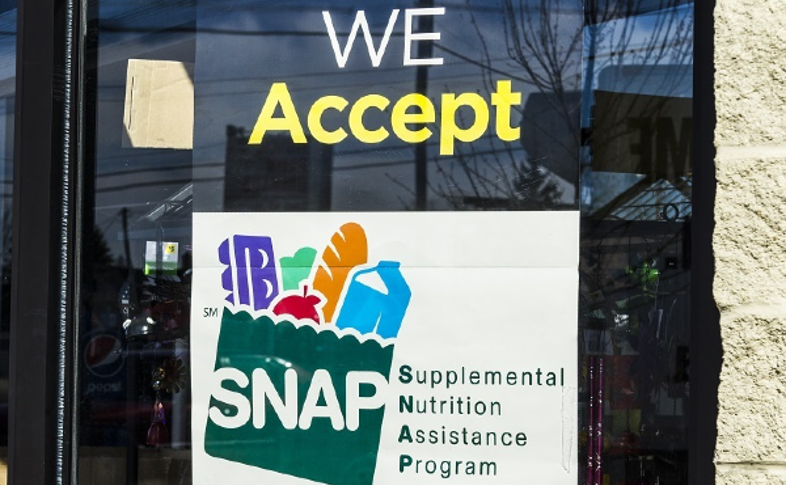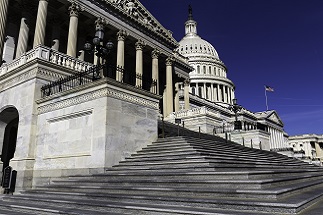
Senate Passes Disastrous Budget Bill, FRAC Urges House to Stop Dangerous SNAP Cuts
Ahead of Independence Day, when our country honors freedom and opportunity, Senate Republicans rushed to pass President Trump’s “big, beautiful bill,” advancing his agenda to dismantle critical supports for millions of people. In addition to extending Trump’s 2017 tax cuts for the wealthy and raising the federal debt ceiling by $5 trillion, the bill slashes billions of dollars from the Supplemental Nutrition Assistance Program (SNAP), imposes time limits, restricts program eligibility, and shifts unsustainable costs to the states. The Senate bill takes away food assistance from millions of people in need and undermines the very promise of opportunity this country celebrates. Read more in FRAC’s statement.
Three Advocacy Actions
- Every call counts. Let’s flood the Capitol Switchboard (202-225-3121) on June 17 to make sure every Senator hears “Vote No” from their constituents. Tell your Senators they must protect SNAP and reject proposals to cut or weaken this proven anti-hunger program.
- Make noise on social media. Get the attention of your Senators by tagging them in your posts asking them to vote “No.” Use FRAC’s digital toolkit that is filled with sample posts and graphics. #ProtectSNAP.
- Send an email. Use FRAC’s Action Network to send an email message directly to your Senators to urge them to vote “No” on the budget reconciliation bill. Your message will show them how this harmful bill will have a horrible ripple effect on people’s health, the economy, and children’s access to free school meals.
Resources to Share

- 2025 Budget Reconciliation: Oppose Cuts to the Federal Food and Nutrition Programs
- Creating a Healthier Future by Protecting and Strengthening the Child Nutrition Programs
- Creating a Healthier Future by Protecting and Strengthening the Supplemental Nutrition Assistance Program (SNAP)
- Fiscal Year 2026 Budget and Appropriations Priorities for Food and Nutrition Programs
-
-
Visit Farm Bill 2025 for all Farm Bill legislation and actions.
-
Visit Budget, Reconciliation & Appropriations for all relevant legislation and actions.
-
Visit our Healthy School Meals for All (HSMFA) microsite for all HSMFA legislation and actions.
-
Visit FRAC’s Bills We’re Supporting page for additional priorities for families struggling against hunger.
-

Now is the time to advocate for the protection of the Supplemental Nutrition Assistance Program (SNAP) and school meals. SNAP is a vital resource for millions of Americans, while the Community Eligibility Provision supports students, families, and schools. We need your help to ensure these programs remain intact, free from harmful cuts.
Six Key Actions to Take:
- Sign-on Letter – The Food Research & Action Center (FRAC) and more than 1,800 national, state, and local organizations from every state in the country signed on to a letter urging Congress to reject any proposals that would cut or weaken the Supplemental Nutrition Assistance Program (SNAP) and the child nutrition programs. Use the letter in your advocacy.
- Check out FRAC’s tips on organizing a site visit for your Members of Congress.
- Use FRAC’s state-by-state SNAP fact sheets in your advocacy. Share these powerful quotes on why SNAP matters.
- Explore the state-level impacts of proposed cuts to school meals in FRAC’s new state-by-state CEP fact sheets. Find your state and use our fact sheets in your advocacy.
- Use FRAC’s social media toolkit to oppose cuts to SNAP and school meals.
- Use the FRAC Action Network to email Members of Congress on protecting both SNAP and school meals.
For questions or more information, contact Tim Klipp-Lockhart, tklipp-lockhart@frac.org.

National Anti-Hunger Policy Conference
The National Anti-Hunger Policy Conference, sponsored by the Food Research & Action Center, and in cooperation with the National CACFP Forum, will be held May 4–6, 2025, in Washington, D.C. at the Omni Shoreham Hotel. Over a thousand anti-hunger advocates will join together from across the country to attend content-rich sessions, learn legislative best practices, explore innovative advocacy methods, and form personal connections to help better fight hunger in their communities. Reserve your spot today.

SNAP Matters Rally
On Tuesday, May 6, at 8:30 a.m., join FRAC for a SNAP Matters rally at the Upper Senate Park with several Members of Congress and advocates to highlight the critical role of SNAP and fight back against harmful proposals to cut the program, which serves as our nation’s first line of defense against hunger. During the Conference’s Monday networking lunch, materials will be available to create posters and signs, so start thinking about how you want to design your sign. Participating in the rally is a great way to get energized for your Hill visits that day.

SNAP Matters: Quotes from Participants
SNAP matters. Learn why in FRAC’s new SNAP Matters two-pager, which features quotes from SNAP recipients on the federal nutrition program’s value and importance. Learn why proposed cuts to SNAP would be disastrous for people with low incomes by exploring the testimonials of SNAP participants.

Take Action: Oppose Any Cuts to School Meals
House Budget Committee Chairman Jodey Arrington (R-TX) has put out a list of proposals for budget reconciliation, which includes $12 billion in cuts to school breakfast and lunch. Use the FRAC Action Network to ask your members of Congress to protect school meals and oppose any cuts in reconciliation that would reduce funding and limit access to school meals.

Action Needed: Protect SNAP from Harmful Cuts
SNAP is a vital lifeline for over 42 million people — combating hunger, improving health, and boosting economic well-being. However, GOP leadership is proposing billions of dollars of cuts to the program that would worsen food insecurity and health outcomes and strain local economies. Use the FRAC Action Network to urge your Members of Congress to vote against SNAP cuts.

Budget Reconciliation 101
Curious about Budget Reconciliation? Unsure about the process or special rules to look out for? Explore this three-page report that explains what you need to know.

Sign Up for the FRAC Action Network!
Urge your Representatives to support and strengthen the Federal Nutrition Programs. Learn about the latest opportunities for action by signing up for the FRAC Action Network. Hungry people can’t wait.
Take Action

Organize a Site Visit
Read More
Recent Publications & Data
See More Resources- Fact Sheet
The Supplemental Nutrition Assistance Program (SNAP) helps millions of families put food on the table every month. It provides women, LGBTQIA+ people, and their families with critical nutrition assistance that supports their health and well-being.
Yet the House-passed budget reconciliation bill and Senate proposal seek to make wide-reaching cuts to SNAP, including by expanding time limits. Learn how these proposals would harm women, LGBTQIA+ people, and families in a new resource from FRAC and the National Women’s Law Center.
Read the fact sheet - Report
More schools and school districts are offering free school meals to all students through the Community Eligibility Provision (CEP), according to FRAC’s latest report, Community Eligibility: The Key to Hunger-Free Schools. This report analyzes CEP adoption—nationally and for each state and the District of Columbia—in the 2024–2025 school year.
Read the report - Report
In February 2025, the president signed an Executive Order established the Make America Healthy Again (MAHA) Commission. The Commission is tasked with investigating and addressing the root causes of America’s escalating health crisis, with an initial focus on childhood chronic diseases. Within 180 days, the Commission will use the findings from the assessment to create a strategy aimed at improving the health of America’s children.
Read the report here - Fact Sheet
The Supplemental Nutrition Assistance Program (SNAP) is the nation’s first line of defense against hunger, helping 42.6 million people in the U.S. put food on the table. As food insecurity and food prices continue increasing, protecting and strengthening SNAP is more important than ever. Discover SNAP’s impact across the U.S. in FRAC’s national SNAP fact sheet.
Discover SNAP's Impact
News
FRAC Chat
Annually, the U.S. Department of Agriculture (USDA) issues a report on the characteristics of households and individuals participating in the Supplemental Nutrition Assistance Program (SNAP). The most recent report released in April provides details about fiscal year 2023 program participants, and critical insights for lawmakers, advocates, and stakeholders, while simultaneously pushing back against harmful narratives that have been perpetuated about households participating in SNAP.
Senate Republicans continue to debate deep cuts to basic needs services as part of a larger plan to fund President Trump’s tax breaks for the ultra-wealthy. On Sunday, parliamentary rulings targeted two Supplemental Nutrition Assistance Program (SNAP) provisions, the measures to shift costs to states and to bar humanitarian-based immigrants from receiving SNAP benefits. On Tuesday, the Senate Agriculture Committee issued a press release incorrectly claiming the parliamentarian had ruled in favor of its updated language to allow its cost shift provision. That release and a related social media post celebrating a GOP “win” were promptly taken down. On Wednesday, the committee released revised language that attempts to comply with procedural requirements but is equally harmful — it keeps the state cost shift with some amendments and exempts other humanitarian-based immigrants. (See table comparison). Whether this amended version will pass muster with the parliamentarian remains to be seen.
The Food Research & Action Center’s (FRAC) recent report, Community Eligibility: The Key to Hunger-Free Schools, highlights Community Eligibility Provision (CEP) adoption in the 2024– 2025 school year and showcases the significant growth in CEP utilization by schools and school districts around the country since becoming available nationwide over a decade ago. CEP allows high-poverty schools to offer all students breakfast and lunch at no charge regardless of household income, thus reducing stigma in the cafeteria and increasing participation in school meal programs. CEP supports students and their families, by stretching household food budgets, combatting childhood food insecurity, and supporting student health and learning. Furthermore, CEP streamlines the administration of school meal programs, reducing administrative burdens on school nutrition departments, and freeing staff time so school nutrition professionals can focus on their mission: serving students delicious and nutritious school meals.
